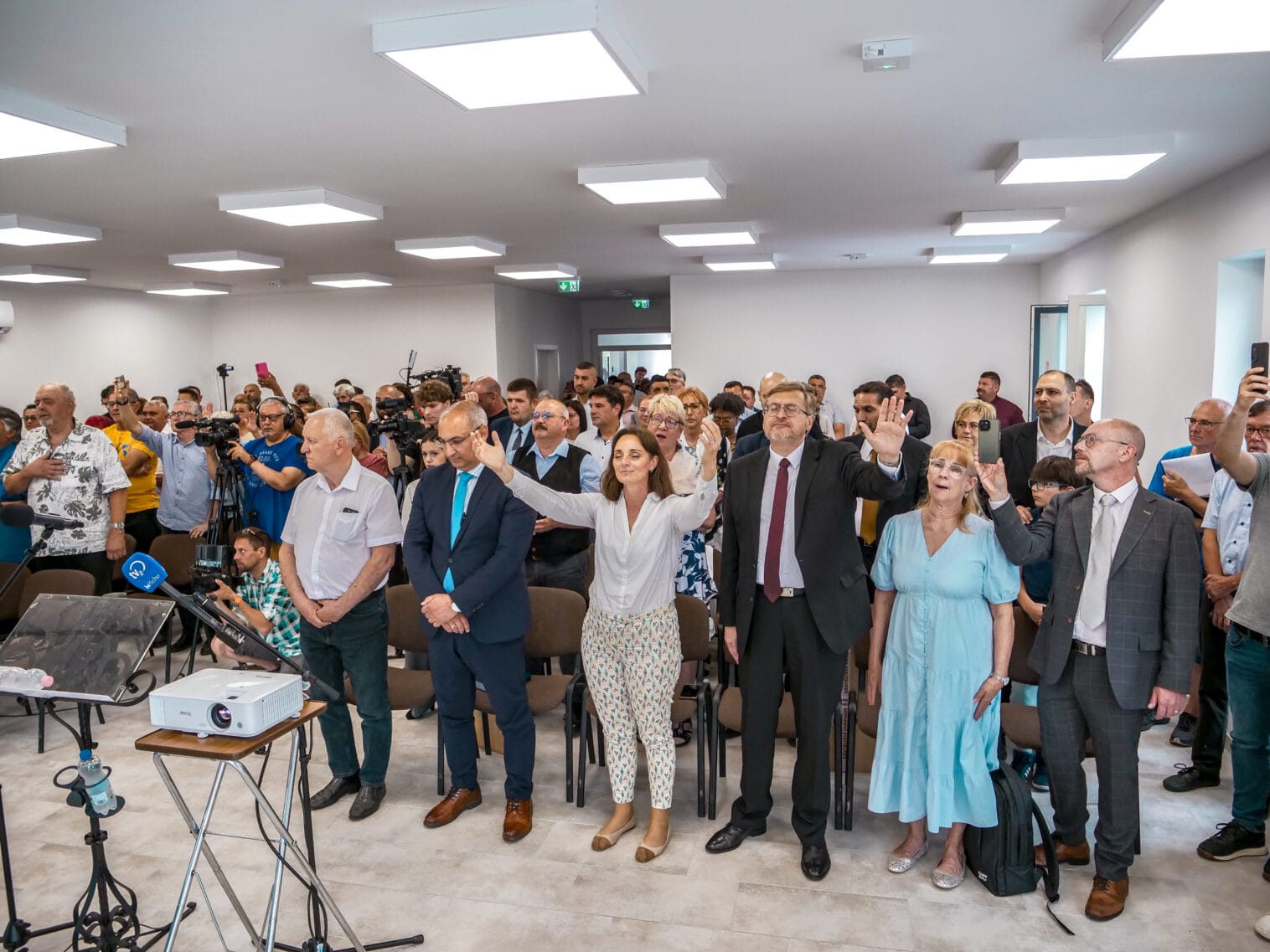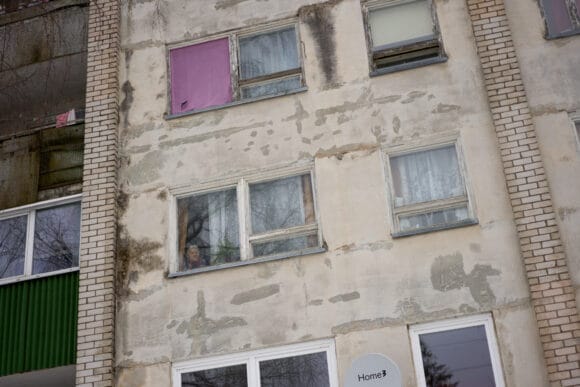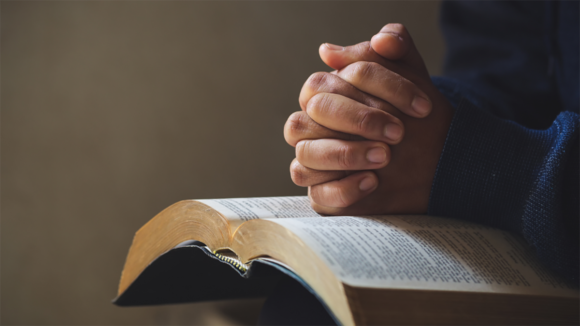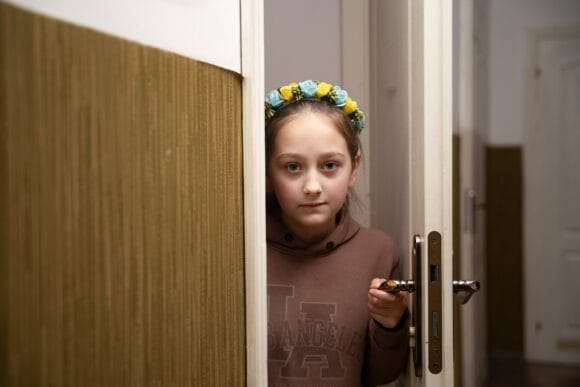In eastern Hungary, something unique has been built in the middle of a Roma community called Delhi – the community’s first church building.
In June, the Hungarian Pentecostal Church celebrated its first new church building in twenty years. The church, built in the middle of the Roma community of Delhi, is believed to be the first new church building in Hungary built specifically for the Roma people. The rapidly growing but poor churches usually gather in modest rented premises.
The opening ceremony of the Delhi Roma community on the outskirts of Mezőberény was particularly significant for missionary couple Pirjo-Riitta and Aarne Törmänen, who have been involved in planting the church since 2017.
– The opening ceremony was a wonderful and warm-hearted event. There wasn’t even enough room for everyone to sit down. The leaders of the Hungarian Pentecostal revival and many media representatives were also present, says Pirjo-Riitta Törmänen, who also spoke at the event.
From an empty lot to a church
Five years ago, the site was just an abandoned plot of land on the outskirts of a remote village. The congregation began when László Surman, the missions director of the Hungarian Gypsy Missions International (HGMI), started a home group that held classes in a family house.
Pirjo-Riitta and Aarne Törmänen started working in the area as teachers and consultants for the Roma Mission’s elementary school. They were soon asked to join the team in Mezőberény, where there were many children in need of education.
They joined the church planting team and organised a children’s club in the small rooms of the house that hosted the home group, and outside in the yard in the summer. Around 20 children participated.
Eventually, the house became too small and a new meeting place was urgently needed.
A shared vision came true
In 2020, László Surman had a vision of a magnificent, illuminated church at the end of a long, straight road in Delhi. The vision was so powerful that he went to the site to check if the church was there. He saw the church again, but when he approached it, it disappeared, leaving only an empty lot.
At the same time, Fida employees were celebrating the beginning of the new year with their annual week of prayer and fasting. Pirjo-Riitta and Aarne Törmänen had long prayed for more spacious meeting facilities for the Delhi congregation. One morning, their colleague Ruut Turunen called Pirjo-Riitta:
– Your prayers have been heard. I had a vision in which you were told to go to a straight road. You will meet someone there who knows more about this.
Pirjo-Riitta immediately thought of the village road in Delhi. When the Törmänen couple told Surman about the phone call, he revealed that he had also seen a vision of the church on that same day. Encouraged by their shared vision, they set out to promote the cause.
When the local village chief, who owned the plot of land on which the church was to be built, heard the story, he generously donated the empty plot at the end of the village road.
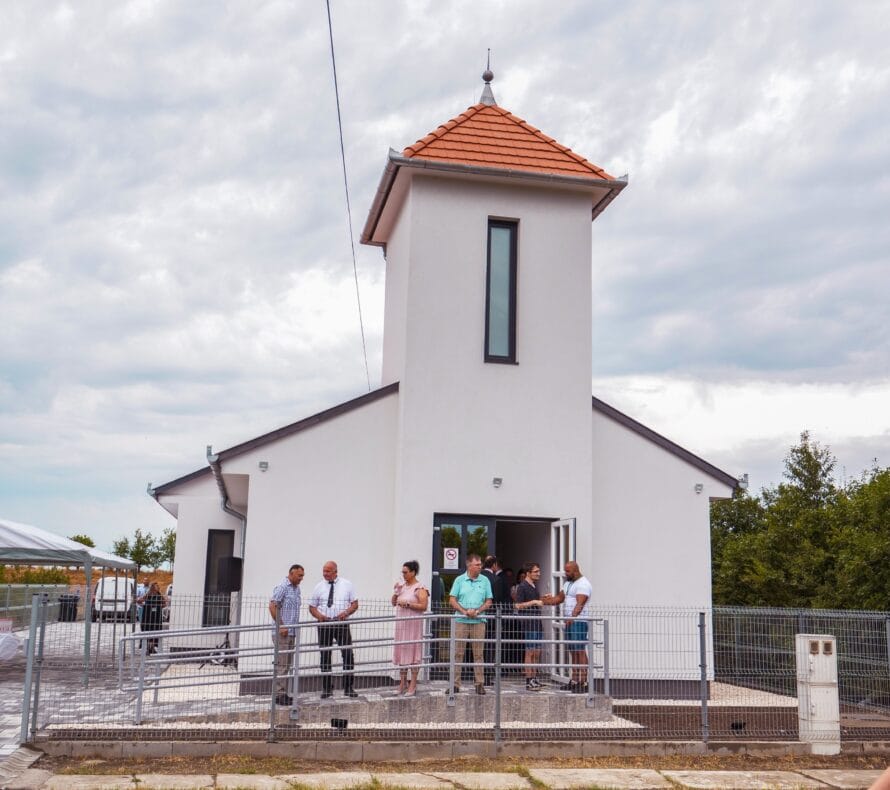

Pirjo-Riitta and Aarne are delighted that the church building, inspired by the vision, is now complete.
– It’s wonderful to see that when God is behind a project, he also helps to bring it to completion. Now we are waiting to see what God will do there. He didn’t want a church there for no reason, say Aarne and Pirjo-Riitta.
Funding for the dream from many sources
During the financing phase of the church, the Törmänen couple say that they felt great gratitude when donations began to pour in from around the world.
– For the people of the village, this is a huge miracle. Many thought that the church would never be built because there was no money for it. However, during the construction phase, residents of the surrounding area became enthusiastic about the project, even renovating their homes and gardens.
Despite the unrest in the area, the church serves as a safe haven and a beacon of hope. László Surman donated the proceeds from his poetry book to the project. The project also received support from the local government and donations from Finland.
Fida contributed €5,000, and the Eelim Pentecostal Church in Kuopio and its members made a particularly significant contribution — some even donated considerable sums. Pastor Jarno Omar of the Eelim Church was also a key figure in the construction project.
A church with a heart
Attila Sztojka, State Secretary for Social Opportunities and Roma Relations at the Hungarian Ministry of the Interior, also attended the opening ceremony. He said that the church in Delhi reflects a genuine longing for spiritual life and the presence of God.
– In today’s world, we see that churches are not being built, but rather demolished or converted for other uses. However, 14 years ago, the Hungarian government decided to leave a blessed land as a legacy for future generations. During this time, we have renovated 3,700 churches and built 200 new ones. I believe that this church will help transform the Delhi community, said Sztojka.
‘Delhi’ is a sarcastic nickname given by the local residents. Nearby are also ‘Paris’ and ‘London’. These remote areas bear no resemblance to the world’s metropolises.
The HGMI has conducted sociological research into the situation of the area’s residents. The results show that the regular presence of a religious community can bring significant changes to residents’ lives.
The new church building can strengthen Roma identity and promote social integration. It also serves as an important community centre, providing various kinds of help and support.
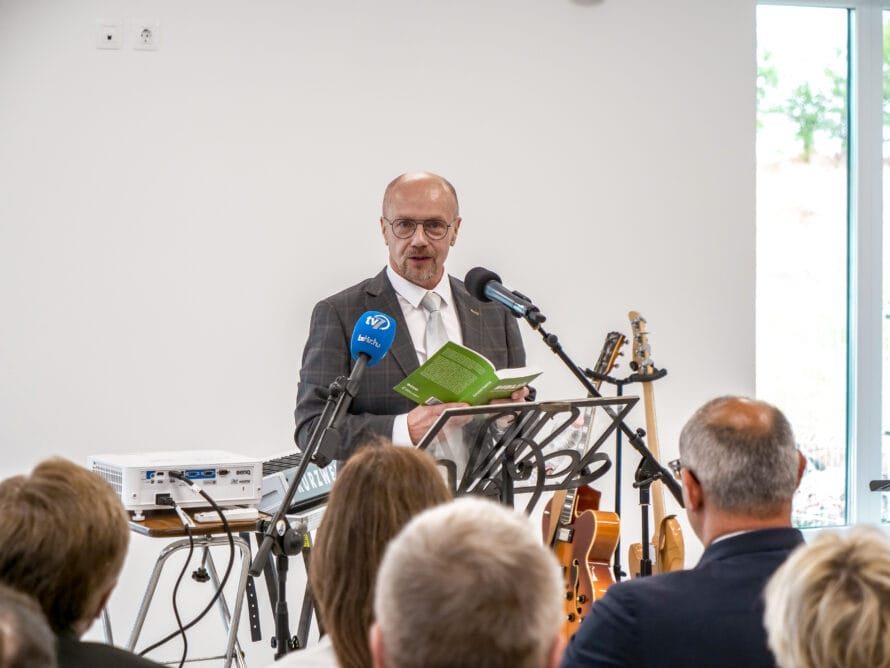

In his speech, Albert Durkó, Director of the Hungarian Gypsy Missions International, emphasised that the Roma deserve the best possible church building.
–Too often, the poor are given only discarded goods. The Roma are not second-class citizens. Jesus gave them the best He had, and that is why we also give our all so that the Roma can find salvation, said Durkó.
Since 1996, the Hungarian Gypsy Missions International (HGMI) has supported the most vulnerable groups in society, offering long-term support. Fida works closely with HGMI in Hungary.
Photos: Hungarian Gypsy Missions International
*Some of the quotes are from Hungarian news articles:
https://gypsymissions.org/new-roma-church-declares-jesus-as-king-in-delhi

